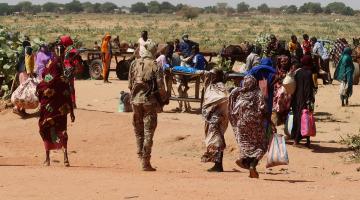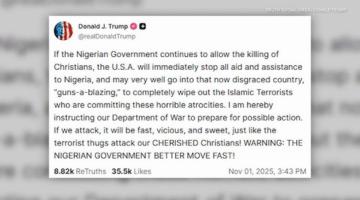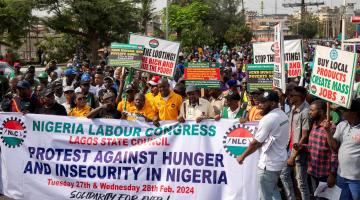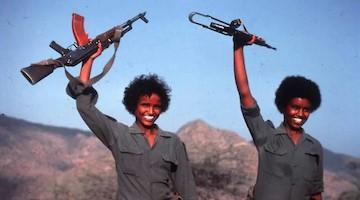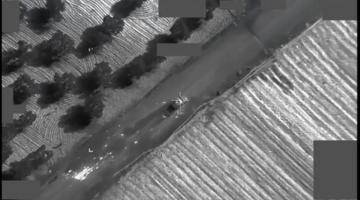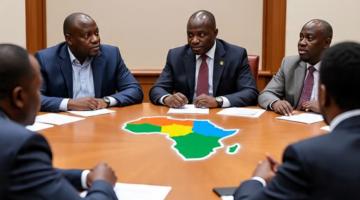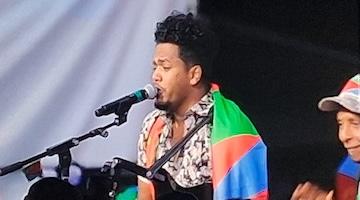Terrorist attacks illustrate the character of neo-colonialism in the 21st century.
1960 was considered the “Year of Africa” as 18 colonial territories on the continent gained their national independence.
Mali was one of those states that declared its sovereignty from France under the leadership of President Modibo Keita, a Pan-Africanist who developed close ties with Dr. Kwame Nkrumah of Ghana and President Ahmed Sekou Toure of Guinea-Conakry.
Following the steps made by Accra and Conakry in 1958, Mali aligned with the concepts of African unity when Keita joined these other West African states in forming the Ghana-Guinea-Mali Union in 1960. These events represented a trend across Africa leading to the founding of the Organization of African Unity (OAU) on May 25, 1963, in Addis Ababa, Ethiopia with 33 member-states.
Even though these developments represented a profound advancement from the eras of enslavement and colonialism, divisions arose in the early phase of the independence movement within individual states and between various governments over the direction of domestic and foreign policies. Some political parties and leaders sought a decisive break with the legacy of European domination and the burgeoning collective imperialism headed by the United States. At the same time, others wanted to remain within the political orbit of the former colonial powers and Washington, D.C.
A series of military coups in Ghana, Mali, Guinea-Conakry and many other states ushered in a period of political instability and economic decline. The promise held out by the ascendancy of the Congolese National Movement (MNC) led by Patrice Lumumba in June 1960 soon dissolved as a result of the interference of the former Belgian colonial powers,the U.S. government under then President Dwight D. Eisenhower, and their coup and Lumumba’s assassination. The State Department and Central Intelligence Agency (CIA) were unleashed to ensure that the ideals of genuine independence and sovereignty would not be realized.
Malian Transitional President Assimi Goita delivered his 64th independence anniversary speech on September 21 saying that the security of the country is paramount during this period of its history. Just four days earlier, rebels carried out an attack outside the capital of Bamako at the international airport housing an Air Force base and a police training academy. Reports indicate that approximately 77 people died and 256 were injured in the operations.
The rebel assault on the Malian airport was carried out by the Jama’at Nusrat al-Islam wa al-Muslimeen (JNIM), a purportedly Islamist grouping that has been fighting the central government in Bamako for more than a decade. After the Pentagon and NATO-led destruction of Libya under Col. Muammar Gaddafi in 2011, instability spread throughout the entire North and West Africa regions. Similar rebel organizations which were utilized by the U.S. and its NATO allies in Libya to give the appearance of an internal counter-revolution, later surfaced in nearby states.
Under the guise of combating “Islamic terrorism”, the U.S. Africa Command (AFRICOM) along with the French Foreign Legion, which were labeled the Group of Five Sahel (G5 Sahel) and Operation Barkhane, escalated their deployment of troops into Mali and several West African states in the Sahel. However, since 2020, a series of military seizures of power began to reject imperialist military interventions claiming that their presence had only worsened the security crisis in these West African states including Burkina Faso and Niger as well.
The requested withdrawal of French and U.S. troops from Niger signaled a shift in geostrategic alliances in the West Africa region. Russian advisors from the Wagner Group, now known as the Africa Corps, have entered several Sahal countries where they are working with the military-led administrations to improve the security situations.
Mali Transitional President Assesses Status of the Country
Goita in his September 21 speech noted that there have been advances in eradicating the rebel groupings in Mali. A recent revelation regarding the role of the Washington-backed Ukrainian regime in assisting the insurgents prompted the breaking of diplomatic relations with Kiev.
In a report issued by the Council on Foreign Relations (CFR), the U.S. has allocated more than $175 billion to Ukraine since the beginning of the Russian Special Military Operation in February 2022. Obviously, these funds are not only being utilized in Eastern Europe, they are designed to undermine the Russian Federation both inside and outside the region.
Moscow has enhanced its relations with various African states on a bilateral level and through the Russia-Africa Summit. In response, the administration of President Joe Biden has sought to weaken the military capacity of the Alliance of Sahel States (AES) and their Russian counterparts. The AES was formed in late 2023 as a means to guard against imperialist destabilization in the region. After the seizure of power by the Committee to Safeguard the Homeland (CNSP) military administration in Niger on July 26, 2023, the Economic Community of West African States (ECOWAS) was pressured into threatening a military intervention to reinstall the French and U.S.-backed President Mohamed Bazoum. However, this plot did not materialize although the efforts to clandestinely overthrow the governments in Niger, Burkina Faso and Mali are ongoing.
In a Xinhua news agency report on the 64th anniversary of Malian independence address by Goita, its says that:
“Goita also took the opportunity to highlight the constant efforts of the Malian Armed Forces (FAMa) to secure the country in the face of the terrorist threat, and their professionalism in reclaiming strategic territories. ‘The armed and security forces have conducted stabilization and reconstruction operations in the reclaimed regions,’ he added. This year's national holiday is being celebrated in a ‘context marked by the large-scale strategic operation to reclaim territory’ carried out by the FAMa, aimed at ‘restoring the country's territorial integrity and permanently eliminating the terrorist threat, said Goita. The country's defense and security forces have conducted ‘stabilization and reconstruction operations’ in the reclaimed regions, allowing for the gradual return of public services, schools, and essential infrastructure. These ‘remarkable successes’ are the result of the coordination of military operations and the redeployment of forces in five cities of Ber, Tessalit, Anefis, Kidal, and Aguelhoc.”
These developments in Mali further reveal the role of imperialism in maintaining its dominance over the post-colonial African states. Therefore, AU member-states are justified in seeking allies that will assist them in guaranteeing their security, unity and national sovereignty.
U.S. Attempts to Deceive the AU in the Upcoming United Nations General Assembly
On the eve of the 79th United Nations General Assembly debates, the U.S. Ambassador to the UN, Linda Thomas-Greenfield, made an announcement saying Washington would support the placing of two African states as permanent members of the Security Council. Nonetheless, these two AU member-states would not have veto power over the decisions made by the highest body of the organization.
In reality, such a proposal coming from the U.S. is only a ploy to make it appear as if Washington and Wall Street have something to offer the African continent. The growing relations between the AU, the People’s Republic of China and the Russian Federation have alarmed the imperialist states.
International institutions such as BRICS Plus and the Forum on China-Africa Cooperation (FOCAC) are attempting to prefigure the future world system where multipolarity will overturn the unipolar domination of the U.S. and allied NATO governments. Africa with its vast natural resources and geostrategic significance is a major source of competition for total control by international finance capital.
This year’s UNGA will be the center of the continuing debate over the status and policies of the State of Israel. Since the last gathering, the Israeli Defense Forces (IDF) have killed more than 186,000 people in the Gaza Strip. Hundreds of thousands have been injured and displaced. No one living in Gaza remains safe from the atrocities being committed by the Zionist regime which is funded and diplomatically covered by the U.S.
Several of the African states will address the UNGA on behalf of their struggling and oppressed masses. They can easily make a case for not only veto power within the UN Security Council notwithstanding the necessity of ending the unequal distribution of economic and political power on a global scale.
The processes unfolding in Mali, Burkina Faso and Niger are reflective of the widening international class divisions which threatened the peace and security of the entire planet. These escalating attacks in Mali must be viewed within the same geopolitical context as the Israeli military strikes against the people of Lebanon who are in solidarity with the Palestinians.
U.S. imperialism is clearly behind the expansion of the wars in West Asia and in West Africa. Both geopolitical regions are populated by hundreds of millions of people seeking to win total liberation, which would portend much for the inevitable decline in western hegemony.
Abayomi Azikiwe is the Editor of Pan-African News Wire.

